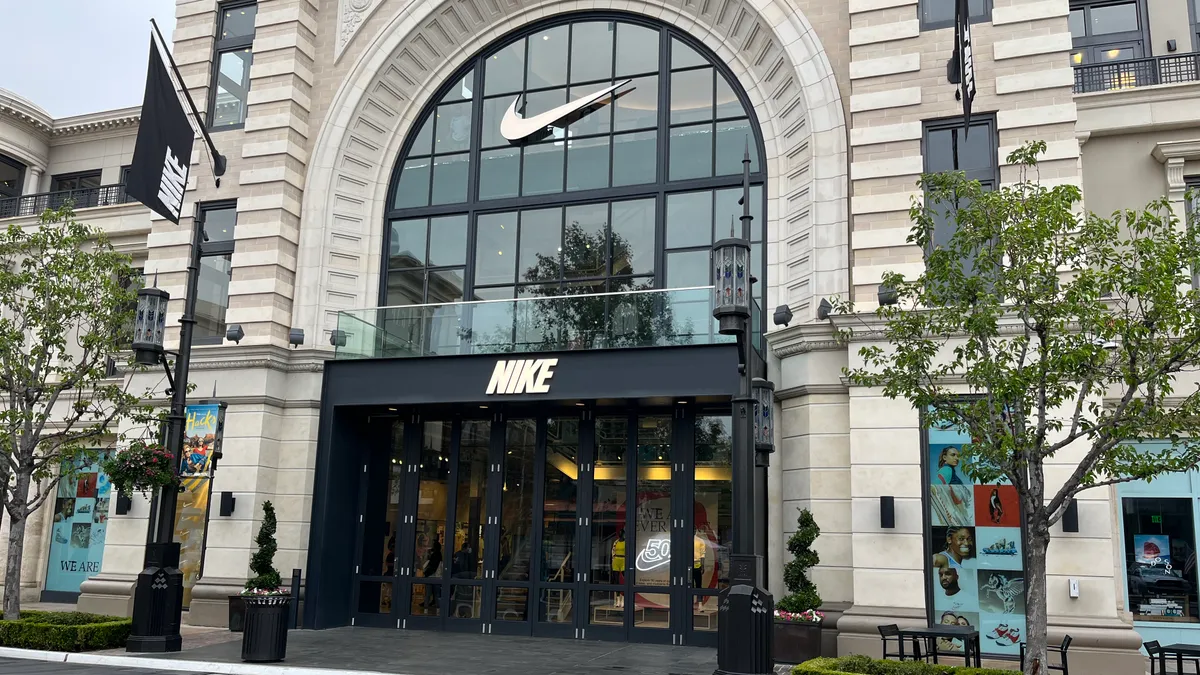Dive Brief:
- Amid a Q2 revenue decline of 8%, Nike CEO Elliott Hill, who took over from John Donahoe in October, outlined a multi-pronged approach to get the sportswear giant back to growth on a call with analysts Thursday.
- Among the initiatives, Hill said the retailer would rebuild relationships with its wholesale partners, increase investments in brand storytelling, cut down on promotions, improve product and invest in local teams.
- Nike in Q2 reported revenues of $12.4 billion, compared to $13.4 billion in the year-ago period, with Nike Direct revenues down 13% and wholesale down 3%. Net income, too, fell 26% in the quarter to $1.2 billion, per a company press release.
Dive Insight:
In his first earnings call as CEO, Hill didn’t mince words, calling out the sportswear giant for losing its focus on sport, relying too much on a handful of silhouettes, not investing in the brand enough and centralizing resources to the detriment of key cities and markets. The brand’s overemphasis on DTC was also a main talking point for the executive.
“Prioritizing Nike digital revenue has impacted the health of our marketplaces,” Hill said. “We will build back an integrated marketplace. Across Nike Direct and wholesale, our marketplace will be consumer-led, putting our best product and presentation in the path of the consumer, wherever they choose to shop.”
Traffic in both Nike’s stores and on its website has softened, according to Hill, because of the brand’s lack of product newness and storytelling. That has led to excessive promotions, which Nike intends to combat as well going forward, with the aim of returning to a full-price, premium-positioned brand. At the same time, Hill emphasized that the retailer would focus on earning the trust of its wholesale partners once again and rebuilding those relationships.
“Some partners and channels feel we've turned our back on them and we stopped engaging consistently,” Hill said. The executive said he’d spoken to many of the brand’s wholesale partners directly, including Dick’s Sporting Goods, Foot Locker and JD Sports, as well as major sports organizations like the NBA.
“The consistent feedback we've heard is pretty simple: Let’s see more of Nike being Nike,” Hill said.
In order to execute on that, Nike is also changing its organizational structure so that teams are organized by sport and subcategory (women’s, men’s and kids), and is emphasizing a return to more disciplined franchise management. CFO Matt Friend said the company was targeting a “significant reduction” in the supply of its classic footwear franchises in particular over the next few seasons.
Ultimately, while the financials were “not as bad as feared,” Needham analyst Tom Nikic said the bigger takeaway was Hill’s new strategy.
“More importantly, new CEO Elliott Hill outlined his vision for the company (including a sober assessment of what's gone wrong),” Nikic said. “While fundamentals will be very challenged in the near-term, we believe that it takes a back seat to the narrative, which is that of a veteran athlete coming out of retirement to pull his once-proud team out of the dumps.”














